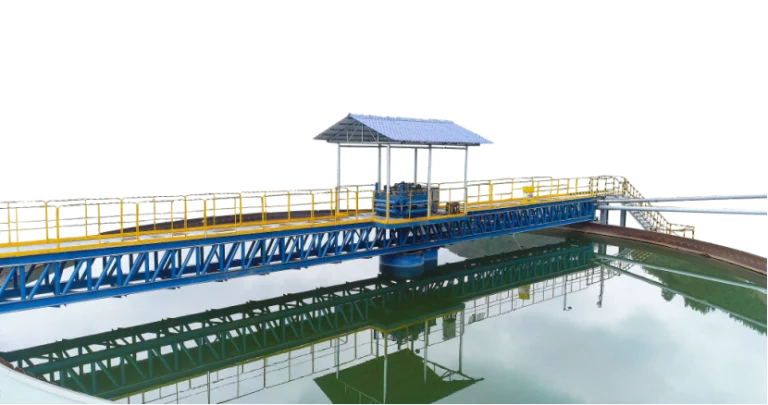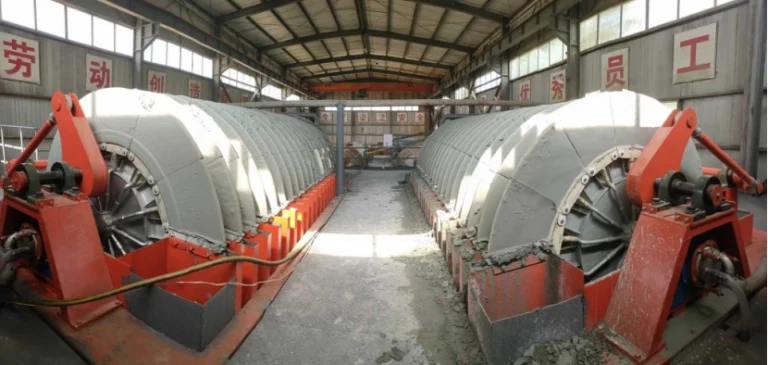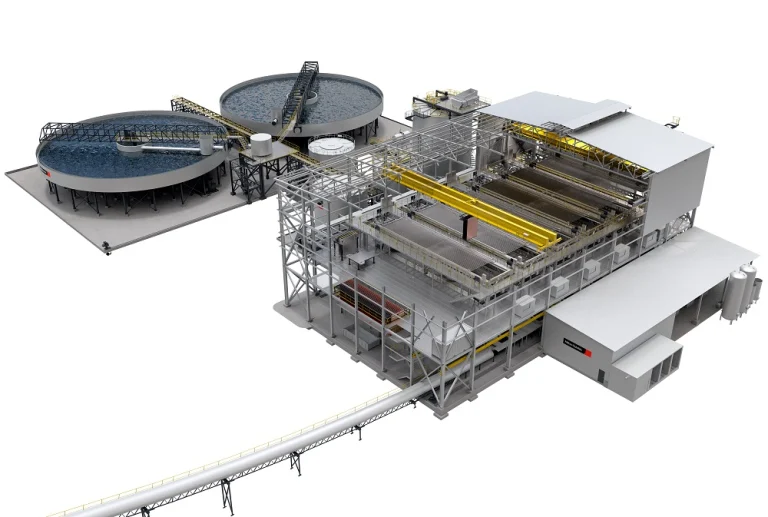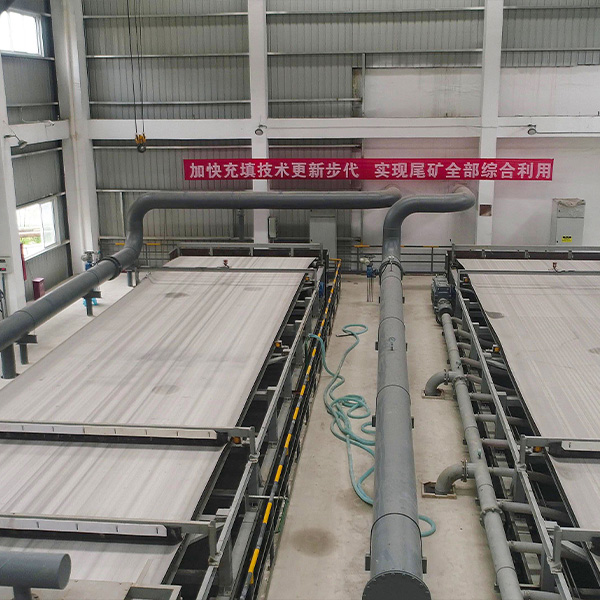
Understanding Belt Filter Technology
What is a Belt Filter?
A belt filter is an effective device. It separates solids from liquids. It uses a filter cloth as the medium. Separation happens through gravity and vacuum suction. The horizontal vacuum filter serves many industries. These include metallurgy, mining, and petrochemicals. It’s also used in chemicals, pharmaceuticals, and environmental protection. The technology excels in tasks like gypsum dewatering. It handles tailings treatment well.
Key Components of a Belt Filter
Belt filters have vital parts. They work together smoothly:
- Rubber Belt: Supports the filter cloth. It moves slurry across the filtration area.
- Filter Cloth: Separates solids from liquids. It’s the main medium.
- Vacuum Box: Creates suction. It pulls liquid through the cloth. It keeps solids behind.
- Distributor: Spreads slurry evenly on the cloth.
- Washing and Drying Sections: Clean solids thoroughly. They remove extra moisture.
The Dewatering Process
Dewatering starts with slurry distribution. A distributor spreads it on the filter cloth. A vacuum system connects to the chamber. This forms a suction area. Liquid passes through the cloth. It collects in grooves on the rubber belt. It flows to a vacuum chamber. Solids stay on the cloth. They form a filter cake. The cake moves to washing zones. It goes through drying zones. Then, it’s discharged. The cloth gets cleaned. It’s ready for reuse.
Applications of Belt Filters in Various Industries
Wastewater Treatment Plants
Belt filters are key in wastewater treatment. They separate sludge from water efficiently. They handle large volumes. They produce low-moisture cake. This makes them essential for municipal plants. Industrial facilities rely on them too.
Mining and Metallurgy
In mining, belt filters dewater mineral concentrates. They process tailings. In metallurgy, they separate valuable metals. They manage waste materials. They handle oxides and electrolytic residues. They treat leaching residues effectively.
Chemical and Fertilizer Industries
Chemical production needs complex separation. Belt filters perform well here. They adapt to various processes. In fertilizer production, they manage by-products. They ensure high-quality output.
Food and Pharmaceutical Sectors
The food industry uses belt filters. They clarify juices. They refine sugars. In pharmaceuticals, they ensure precise separation. They meet strict quality standards.
Advantages of Using Belt Filters for Industrial Processes
Reduced Waste Volume
Belt filters extract maximum liquid. This shrinks waste volume. It lowers disposal costs. It simplifies waste handling.
Improved Efficiency
Belt filters operate continuously. They have automated controls. Their modular design boosts efficiency. They can be semi-enclosed. Some are fully enclosed. This handles volatile materials. These features streamline processes. They reduce manual work.
Environmental Sustainability
Belt filters aid green goals. They recycle water. They reduce environmental harm. Their high separation ensures compliance. They promote resource conservation. Yantai Hexin Environmental Protection Equipment Co., Ltd. offers custom filtration solutions. These meet diverse industry needs.
How Belt Filters Support Regulatory Compliance
Meeting Wastewater Standards
Belt filters help meet strict wastewater rules. They separate solids from liquids well. Effluents comply with guidelines. The horizontal vacuum filter uses filter cloth. It separates through gravity and suction. This suits industries like mining and chemicals. These sectors handle high-solid wastewater.
Low-moisture sludge is easier to manage. It simplifies treatment before disposal. It aids reuse. This ensures compliance. It supports sustainable water practices. Treated water can be recycled.
Handling Residual Solids
Residual solids pose risks if mishandled. Belt filters produce dry filter cakes. These are easy to transport. They’re safe to dispose of. Solids form a cake on the cloth. High dryness reduces waste volume. This cuts transport costs.
Washing and drying sections improve solid quality. The filter fabric and rubber belt run together. They feed, filter, wash, and dry continuously. They regenerate the cloth. This cleans hazardous materials. It minimizes environmental impact.
Economic Benefits of Implementing Belt Filters in Industries
Cost Savings from Reduced Residuals
Belt filters lower residual volume. They extract liquid efficiently. This reduces waste. It saves on transport costs. It cuts disposal expenses. In mining, tailings are heavy. Belt filters lighten them. This lowers logistics costs. Companies redirect resources to core tasks.
Energy savings add value. Advanced designs use modular construction. They include automated controls. These reduce power use. They maintain efficiency.
Long-Term ROI
Belt filters offer strong returns. They’re durable and efficient. They need minimal maintenance. The machine has a low trouble rate. It delivers high performance. This cuts downtime costs. It ensures steady production.
Modern filters have smart features. Remote monitoring is one. Field interaction controls enable automation. Operators optimize performance live. They address issues fast. Lifetime support from Yantai Hexin Environmental Protection Equipment Co., Ltd. ensures lasting value. Systems perform well for years.
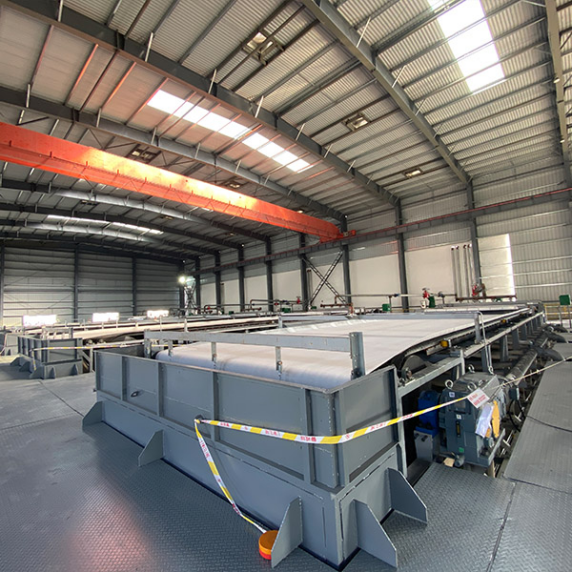
Frequently Asked Questions
Which industries use belt filters most?
Mining and metallurgy benefit greatly. Wastewater treatment plants use them. So do chemicals, food processing, and pharmaceuticals. Environmental protection sectors rely on them too.
How do belt filters aid environmental compliance?
They separate solids from liquids well. They reduce waste volume. This meets wastewater standards. It lowers environmental impact.
Why are belt filters cost-effective?
They run continuously. They need little maintenance. They cut waste disposal costs. Dry filter cakes save on expenses.
Are customizable belt filters available?
Yes. Yantai Hexin provides tailored solutions. These meet specific industry needs.
Contact Yantai Hexin Environmental Protection Equipment Co., Ltd. for filtration solutions. Their team customizes systems for your industry!

